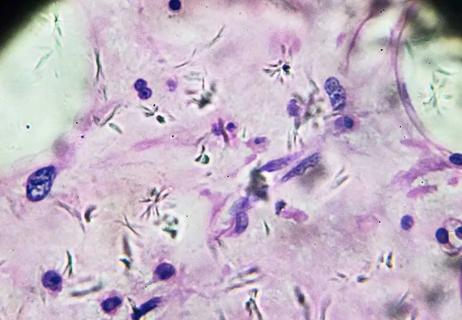One quarter of patients develop a brain tumor later

Getting through cancer treatment successfully is something to celebrate. To stay in good health, doctors say you need to watch for other symptoms, including vision changes, headaches and problems with balance.
Advertisement
Cleveland Clinic is a non-profit academic medical center. Advertising on our site helps support our mission. We do not endorse non-Cleveland Clinic products or services. Policy
Many cancer survivors don’t realize that 25% of people who survive some common cancers go on to develop a brain tumor. These brain tumors don’t originate in the brain but are actually cancerous cells from the original tumor that travel to the brain through the bloodstream. When this happens, doctors call these tumors brain metastases.
“About one-third of patients with the most common cancers — lung, breast and kidney cancer and melanoma — are at risk of developing brain metastases,” says neurosurgeon Gene Barnett, MD.
When this happens, the resulting growth needs early treatment. Dr. Barnett says early detection can help people get the right treatment at the right time to avoid serious complications. This is why you need to be vigilant and pay attention to your symptoms.
If you’ve had cancer and experience these symptoms, be sure to tell your doctor:
Advertisement
Metastatic brain tumors tend to develop gradually, although severe episodes can occur. No matter what, it’s important to tell your doctor immediately so they can evaluate you and treat you early.
For years, doctors believed that brain metastases were uniformly fatal. Treatment could only relieve symptoms. Today, they know that such tumors are treatable, thanks to technological and medical advances. The key is early detection.
We’ve come a long way from the days when the only treatment option available for brain metastases was whole brain radiation. This often failed to control the tumors. Today, aggressive and precisely delivered treatments produce better outcomes with fewer side effects.
Treatment options depend on the location, type and extent of the tumor, and include:
“We want to help patients be aware of all management options, so they don’t blindly agree to a proposed treatment which may not be in their best interest,” Dr. Barnett says. “They always have the right to seek a second opinion.
Advertisement
Learn more about our editorial process.
Advertisement

Prioritize protein and fresh produce, but be extra careful to avoid bacteria that could cause foodborne illnesses

Here’s how (and why) to ask your doctor about treatment goals, second opinions, clinical trials and more

Rates of early-onset breast, colorectal and GI cancers are increasing, but preventive care and a healthy lifestyle can help reduce your risk

The side effects of cancer and treatment can impact desire, sexual function and intimacy, but there are ways you can keep the flame going

Decisions you make regarding smoking, alcohol use, meal choices and exercise can make a big difference

Taming fear and reclaiming your future after treatment

Carcinomas are the most common and affect skin and organs

7 healthy eating tips to help reduce your risk of some of the most common types of cancer

Wearing a scarf, adjusting your outdoor activities and following your asthma treatment plan can help limit breathing problems

Your diet in the weeks, days and hours ahead of your race can power you to the finish line

When someone guilt trips you, they’re using emotionally manipulative behavior to try to get you to act a certain way